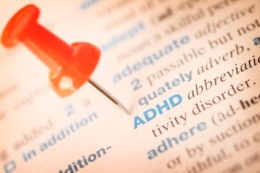10 January 2012
 UniSA researchers are about to launch an investigation into the impact of ADHD medications on children in a bid to pinpoint how stimulants such as Ritalin and dexamphetamine may be impacting areas of the brain that control movement.
UniSA researchers are about to launch an investigation into the impact of ADHD medications on children in a bid to pinpoint how stimulants such as Ritalin and dexamphetamine may be impacting areas of the brain that control movement.
With more than 560,000 prescriptions for ADHD medications dispensed in Australia in the past year alone and prescription rates of ADHD medications on the rise, the research is vital for the safe use of these stimulants.
UniSA researchers are recruiting participants for the study including children with ADHD who have been taking medications for more than a year, children with ADHD who are un-medicated and children who do not have the condition.
Dr Gabrielle Todd from the University’s School of Pharmacy and Medical Sciences says the study will make an important contribution to our knowledge about the impact of stimulant medications on children in the long term.
“The effect of using these drugs over a longer period is not well understood and it has already been noted that ADHD children treated with stimulants have an abnormality in the area of the brain that controls movement,” Dr Todd says.
“What we really don’t know is if the medication causes that abnormality or if it is a feature of ADHD itself.
“Many children are taking the medications over several years so it is vital that we understand the full impact.
“This study will be important in clarifying the facts around Ritalin and dexamphetamine and influence how we treat the disease in the future.”
Dr Todd says the study will involve children in a range of simple hand and body movements and will include a non-invasive ultrasound of the brain and an interview with the child’s parent or guardian.
“We are looking for 50 children (aged from 6 to 18 years) in each of the three categories outlined and all participants will be compensated for their time,” Dr Todd said.
“They will also know that they are contributing to research that may make all the difference to how we tackle ADHD in the future and to how we understand the use of drugs such as Ritalin and dexamphetamine.”
To take part in the study, contact research assistant Miranda Leach on 8302 1248 or by email at miranda.leach@unisa.edu.au
Media contact
- Michèle Nardelli office (08) 8302 0966 mobile 0418 823 673 email michele.nardelli@unisa.edu.au
- Dr Gabrielle Todd office (08) 8302 1979 email gabrielle.todd@unisa.edu.au
- Miranda Leach office (08) 8302 1248 email miranda.leach@unisa.edu.au



